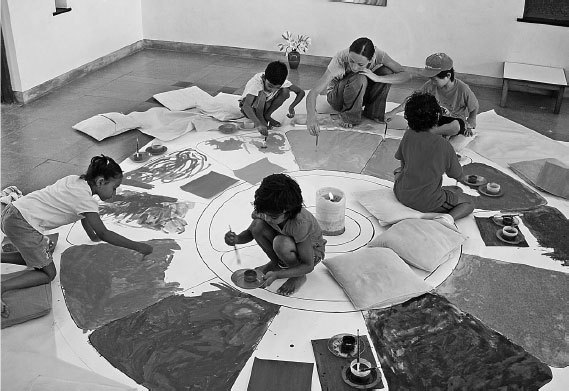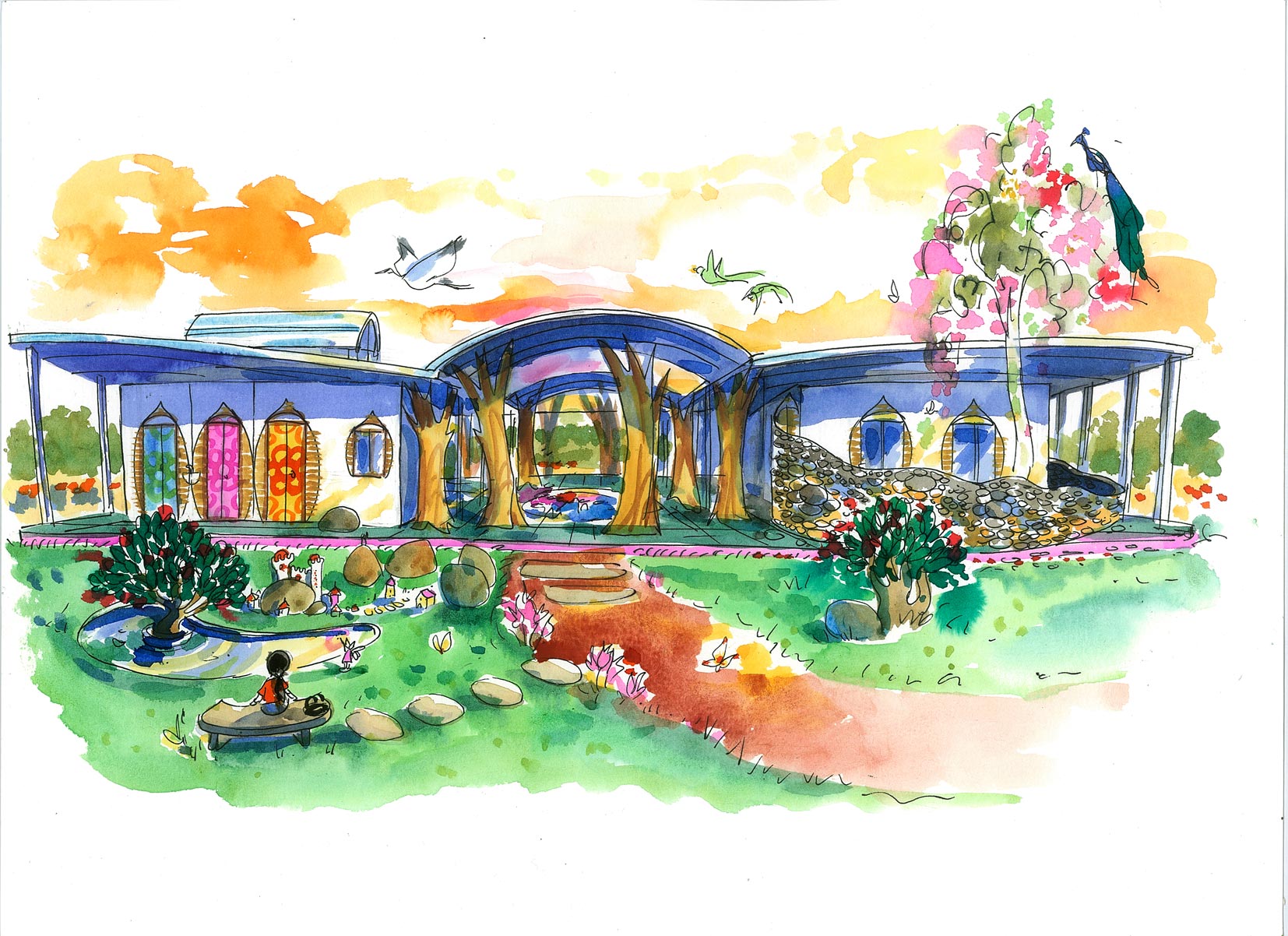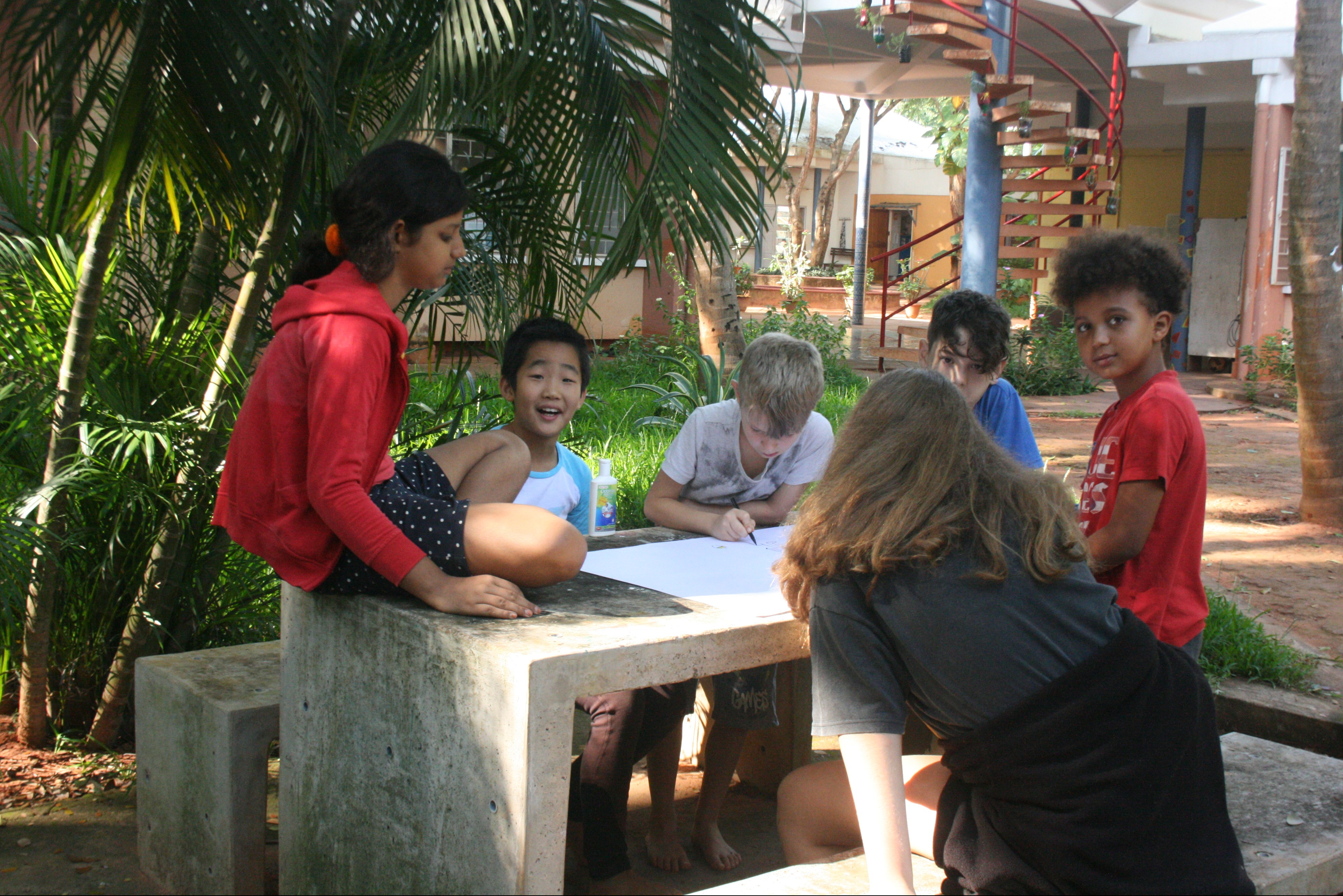Kindergarten
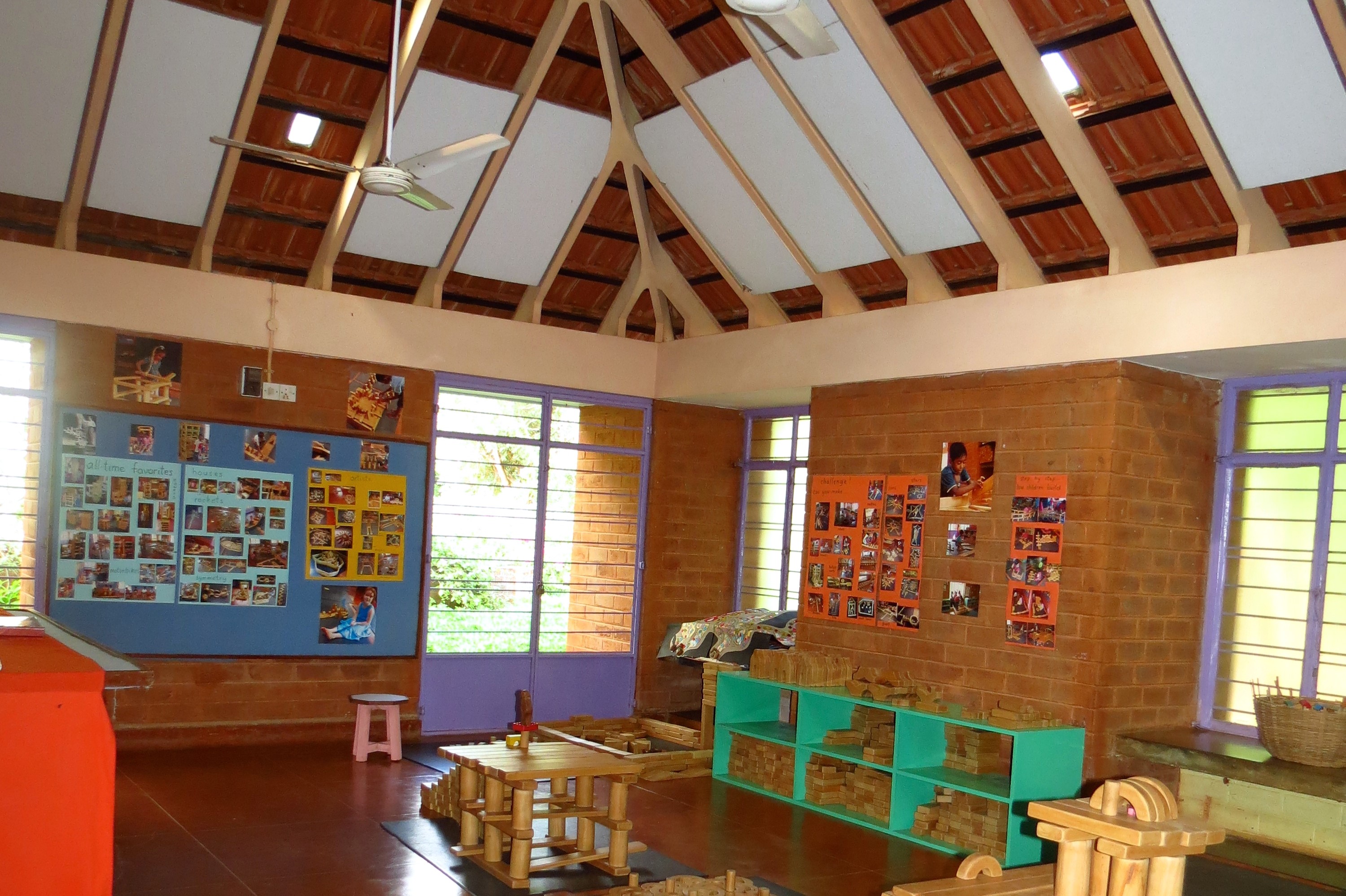
Beginning in 1984, the Kindergarten today accomodates 60 children in four groups. About half of these children are Tamilians, although ten other nationalities are also represented. The coordinating team consists of 7 main teachers and assistant teachers plus 5 specialized teachers for music, Sanskrit songs, swimming, and body awareness.
Although the Auroville Kindergarten started in 1984 with 13 children from 4 to 6 years of age, the compound in which it was situated was not really suitable for small children. It had various small buildings scattered over a large area planted with fruit trees, so a new building was planned with rooms connected around multi-purpose halls. It took some time to see this dream realised, and by the time the new building was inaugurated in 1993 there were already 27 children and 3 classrooms.
Since December 1999 one more classroom functions for the 2+ year olds. Today, the Kindergarten has a capacity of 60 children in four groups. About more than half are Tamilians, though ten other nationalities are also represented.
The Kindergarten team consists of 7 main teachers, several assistant teachers, and about 5 specialized teachers for dance, Sanskrit, swimming, and body awareness. The Kindergarten has the advantage of being located just across the Matrimandir Gardens, by Centre Field, and enjoys the benefit of a small swimming pool.
In the rhythm of the day, the Kindergarten alternates between rigorous activity and quiet activity, directed activity and free choice activity. The aim is to develop the whole child, to develop concentration and each of the senses, while at the same time keeping a balance between meeting the needs of each child and meeting the needs of the group. Children have opportunities for self-expression and the exploration of their own interests, but at the same time, they are expected to be considerate toward others, respect the environment, participate, and share. The children learn in English, but all children are also taught spoken Tamil and French plus songs in Sanskrit.
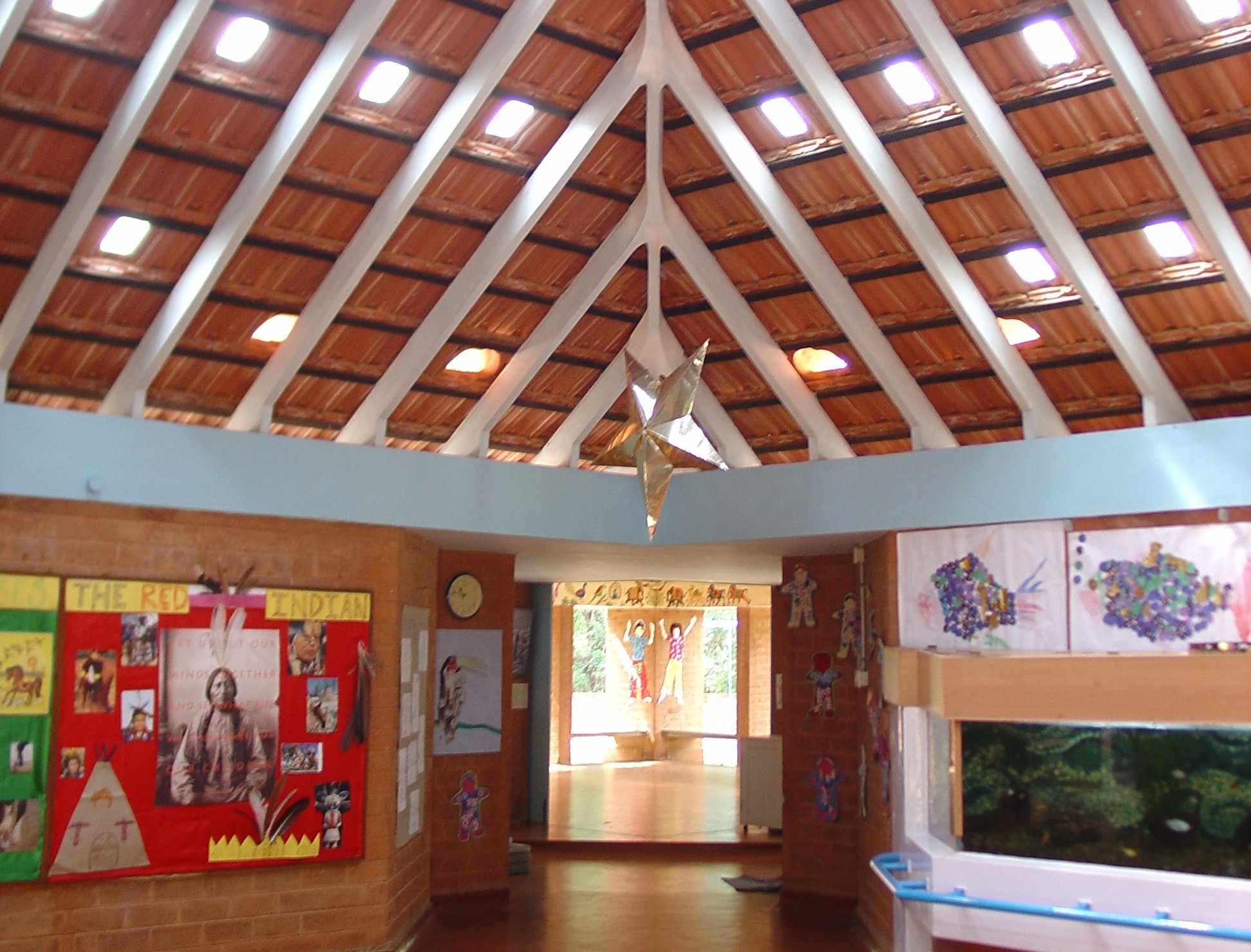
"When you begin with very small children, it’s wonderful! With them there is so little you have to do: you just have to BE. Never make a mistake. Never get angry. Always understand. Understand and see clearly why this movement took place, why that impulse, what the child’s inner constitution is, which point needs to be strengthened and brought to the fore. That’s all you have to do, and then leave them: leave them free to blossom, just give them the opportunity to see many things, touch many things, do as many things as possible. It’s great fun. And above all, do not try to impose on them something which you think you know. Never scold, always understand, and, if a child is capable, explain. If he isn’t capable to receive an explanation, replace the false vibration with a true one [if you are yourself capable of it]. But that…that’s asking of the teachers a perfection they rarely have. But it would be very interesting to draw up a programme for the teachers, and the real programme for study, starting with the very small ones – they are so plastic, and anything leaves such a deep imprint on them! If they were given a few drops of truth when they are very small, they would blossom out quite naturally as their being grows. That would be a lovely work to do."
From: Mother’s Agenda [vol.VIII, April 5th, 1967]
Get in Touch
See Also
